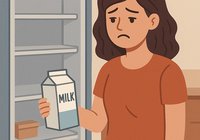| Phrasal verb | Main meaning |
|---|---|
be in [biː ɪn] | to be at home or in a particular place |
Other meanings
- to be popular or fashionable
- to be involved in something (like a project or activity)
- to be elected or in power
Example Sentences Using the Phrasal Verb "be in"
- She’s not be in right now; try calling later.
- Long skirts are be in again this summer.
- Are you be in on the new marketing campaign?
- The new government will be in by next month.
Features of Using "be in"
“Be in” can mean physical presence (“at home”), popularity (“in fashion”), or participation (“involved”). It’s inseparable and very common in spoken English. Context determines which meaning applies.
Other phrasal verbs with the verb be
be back
to have returned to a place
be away
to be absent or not at home
be against
to oppose or disagree with someone or something
be on
to take place
be over
to have finished
be behind
to be late or delayed
be for
to support or favor something
be out
to be absent or not at home
be into
to be interested in or enthusiastic about something or someone
be out of
to have no more of something
be about to
to be on the point of doing something (imminent future)
be down
to not be working or functioning
be up
to be awake; not sleeping
be after
to try to obtain or pursue someone or something
be off
to leave or depart
be with
to support or agree with someone
be along
to arrive soon
be through
to have finished something
be up to
to be doing something (often secretly or mischievously)
🔗 Learn more about the irregular verb be, including its forms and usage.




















